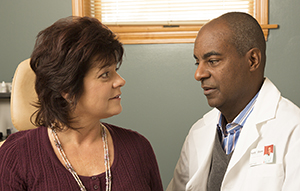Before you have sinus surgery, you will be asked to do some things to get ready. Follow all the instructions you’re given. Call your healthcare provider’s office if you have questions.
Before surgery
To get ready for the surgery:
-
Tell your healthcare provider about all the medicines you take. This includes prescribed and over-the-counter medicines. It also includes vitamins, herbs, and other supplements. Ask if you should stop taking them before surgery.
-
Tell your provider if you have a pacemaker.
-
Tell your provider if you have any allergies.
-
Don't take any medicines that have aspirin or ibuprofen for
3 days before surgery, or as directed. If you take aspirin or other blood thinners for a heart condition or a past stroke, talk with your healthcare providers before stopping them. -
Ask a trusted adult to drive you home after surgery.
-
Follow any directions you're given for not eating or drinking before surgery.
-
Tell your provider if you smoke. Try to quit before your surgery. This can reduce the risk of any problems. Talk to your provider if you need help. They can give you some resources.
Anesthesia
Anesthesia is medicine that keeps you pain-free. It's given by a trained healthcare provider (anesthesiologist). They will talk to you about the type of anesthesia that you'll have. You may be given one or more of these:
-
General anesthesia. This puts you in a deep sleep during surgery.
-
Local anesthesia. This is injected into the skin. It numbs only the area being treated.
-
Monitored sedation. This makes you drowsy or slightly asleep. It doesn’t put you into a deep sleep.
Risks of surgery
This surgery has a high success rate. But as with any surgery, there are some risks. These may include:
-
Infection
-
Bruising
-
Too much bleeding
-
Changed sense of taste or smell
-
Spinal fluid leakage (very rare)
-
Eye injury (very rare)
Featured in


